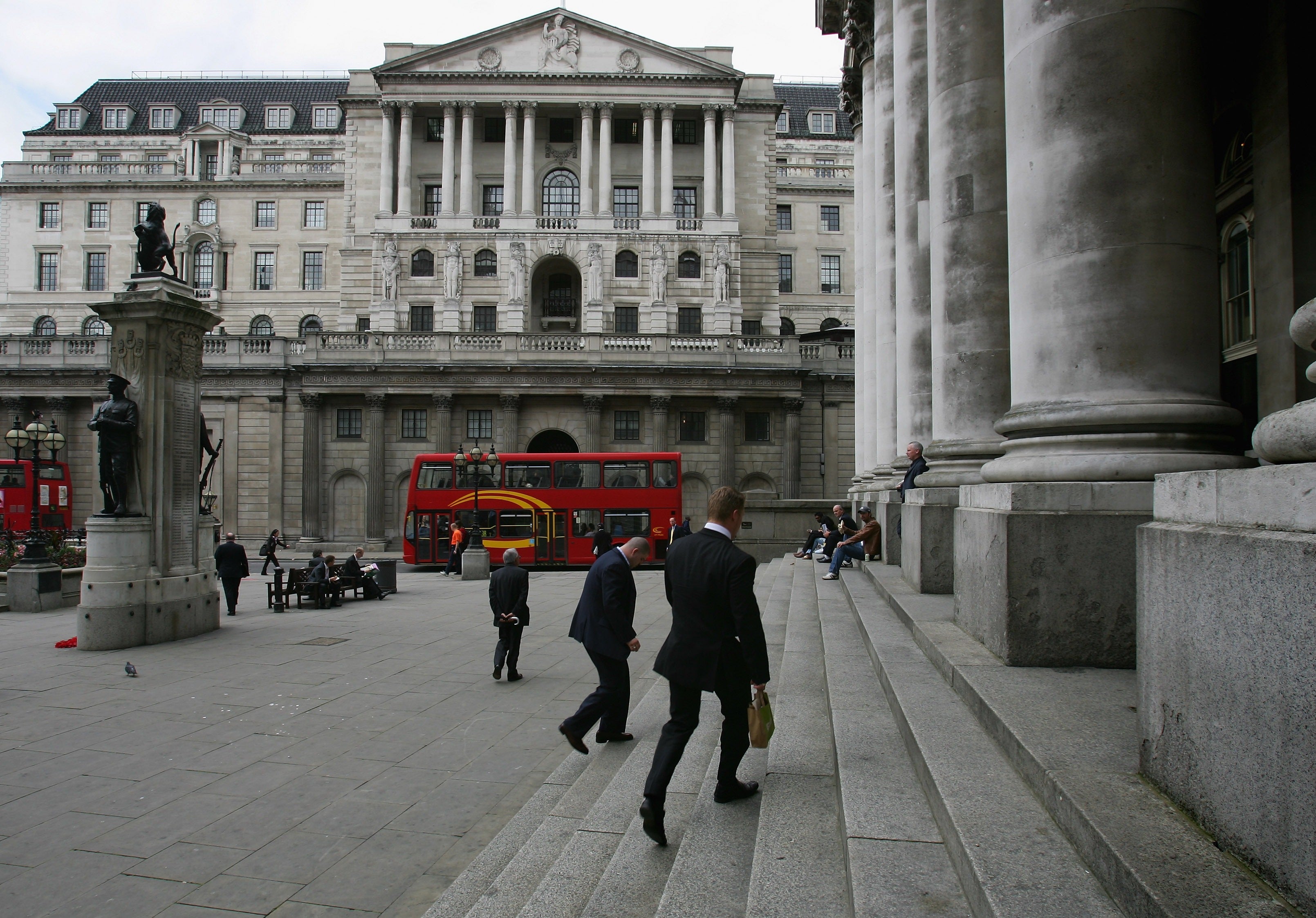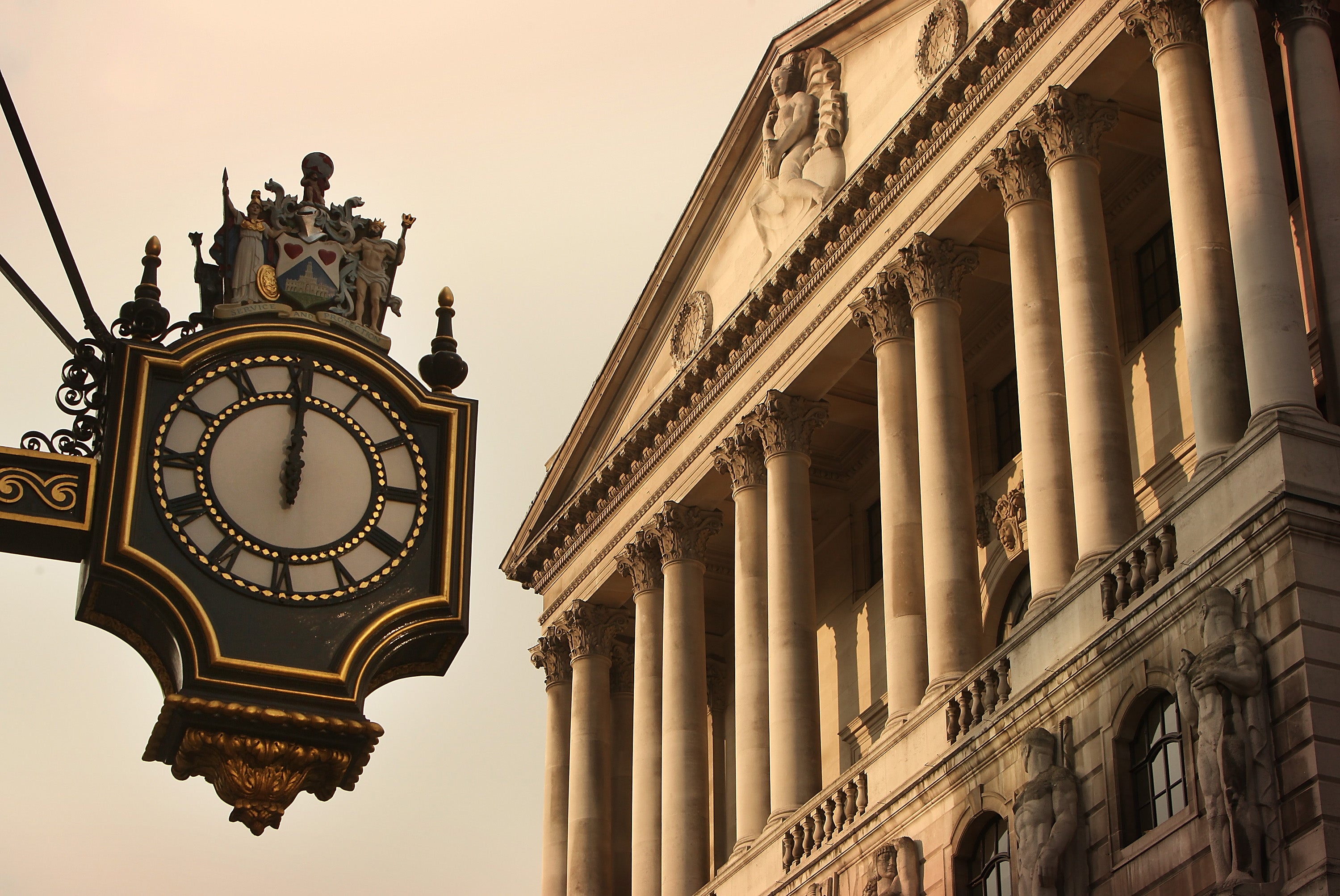Bank of England expected to raise interest rates for 10th time running
Decision would pile more pressure on already-strained borrowers

Your support helps us to tell the story
From reproductive rights to climate change to Big Tech, The Independent is on the ground when the story is developing. Whether it's investigating the financials of Elon Musk's pro-Trump PAC or producing our latest documentary, 'The A Word', which shines a light on the American women fighting for reproductive rights, we know how important it is to parse out the facts from the messaging.
At such a critical moment in US history, we need reporters on the ground. Your donation allows us to keep sending journalists to speak to both sides of the story.
The Independent is trusted by Americans across the entire political spectrum. And unlike many other quality news outlets, we choose not to lock Americans out of our reporting and analysis with paywalls. We believe quality journalism should be available to everyone, paid for by those who can afford it.
Your support makes all the difference.The Bank of England is expected to increase interest rates for the tenth consecutive time later this week.
Financial markets forecast an increase of 0.5 percentage points in the central bank’s base rate to 4 per cent, the highest since the financial crisis of 2008.
Thursday’s announcement comes at a difficult time for mortgage holders and businesses, following nine straight rate increases from the Bank’s monetary policy committee (MPC since December 2021.
The decision would pile more pressure on already-strained borrowers, but with inflation beginning to edge back down off its highs, economists say there is a glimmer of hope in the economy’s more distant future.
Economists polled by Reuters predict one more rate rise – to 4.25 per cent in March – while financial markets think that the tightening cycle will end in the middle of this year at 4.5 per cent.
The Bank has been raising rates successively for more than a year. In December 2021 the base rate stood at just 0.1% as the policymakers tried to encourage consumer spending after Covid slowed down the economy.
But efforts to control inflation and bring it back down to the Bank’s 2% target has led the Bank to tighten monetary policy since.
However, the UK’s consumer prices index (CPI) inflation rate slipped slightly to 10.5% in December, down from 10.7% in November and 11.1% in October, suggesting the measure has now passed its peak.
Deutsche Bank suggested that Thursday would mark the MPC’s final “forceful” hike in the tightening cycle with a 0.5 percentage point increase.

The need to “go big” is because of several factors, including that wage growth has beaten expectations, indicating consumers still have some spending power and that prices are still historically elevated, Deutsche said.
Societe Generale Global Economics suggested the same, but said it expects another 0.5 percentage point hike in March before coming back down.
The SocGen economists said: “Even though the outlook is less gloomy than expected only three months ago, we still think a recession is likely and the MPC’s forecasts should continue to predict one for this year.
“This, and the mounting evidence of some cooling in the labour market, vacancies and job growth in particular, should lead the committee to contemplate an imminent end to tightening.”
Investec Economics, on the other hand, anticipated a smaller rate hike that would take it to 3.75% on Thursday, before peaking at 4% in March.
“Recent weeks have ushered in a greater sense of economic optimism,” Philip Shaw, chief economist at Investec said.
“This has been driven partly by the mild European winter, which has helped to avoid a need for energy rationing, contributing to a substantial fall in current spot gas prices as well as gas price futures.
“In the UK, we are set for another year where real household disposable incomes are set to fall by about 3%, which will continue to squeeze spending and make a recession virtually unavoidable.”
AJ Bell analyst Laith Khalaf said that a lot has changed since the last MPC meeting, including the fall in gas prices, which will make the committee “think twice about pushing rates up too much”.
The news comes as households are under increasing pressure from rate increases.
As many as 2.7 million homeowners who have short-term fixed-rate mortgages are expected to pay at least £100 a month more to refinance their borrowing at higher rates.



Join our commenting forum
Join thought-provoking conversations, follow other Independent readers and see their replies
0Comments